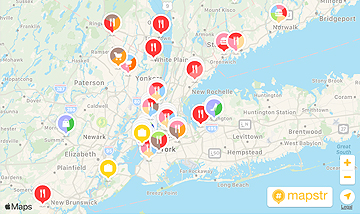Greece/hostages in Cameroon/Mali
Athens, February 19, 2013
FRANCE/CAMEROON/KIDNAPPING
THE PRESIDENT – Seven of our compatriots – three adults and four children – have been kidnapped in Cameroon, most probably by a terrorist group that came from Nigeria; we don’t yet know exactly which one, even though we have strong suspicions. The greatest risk is if our compatriots have been abducted and taken to Nigeria. We’re doing everything to find them. The French people were based in Cameroon for professional reasons, although they were touring around the area concerned. We have a duty of solidarity towards them. The sooner we can intervene, the more certain we’ll be of being able to get them freed.
Q. – Do you think it’s an act of reprisal for the French intervention in Mali?
THE PRESIDENT – No, I think there’s a terrorist danger in much of West Africa, including Cameroon. There have been acts of piracy for a long time off that part of Africa. In Cameroon there are now groups, particularly at the Nigerian border, attacking Western, European and even African interests.
The fight against terrorism concerns not just Mali but the whole of West Africa. It’s the international community’s responsibility to combat this terrorism. We’re doing our share in Mali; Africans should be helped everywhere to get rid of these terrorist groups.
Q. – Do you know a bit more about the circumstances surrounding the capture of these seven French people? Are French forces actively working to try and rescue them, and how?
THE PRESIDENT – As I said, the French people were based there for professional reasons, working for a large energy company. They were on a tourist excursion in northern Cameroon, near the Nigerian border; it’s a dangerous area. I must also tell all our nationals to take lots of precautions, because we know the threat that exists. Having said that, we must do everything to find them; we won’t necessarily be able to do so ourselves, even if we seek intelligence. We must do so in cooperation with the Cameroonian authorities, and those of Nigeria if we fear they’ve been taken there.
The fight against terrorism is a challenge for the international community in which France must play her full part. We can’t succeed alone. Today it concerns all Africans.
Q. – What proof do you have that it’s not an act of reprisal against the French? It was French people who were targeted this time.
THE PRESIDENT – The French have been targeted in that part of Africa for a very long time. We have hostages who were kidnapped well before the French intervention in Mali. We have compatriots who have been held for more than two years. We always face a risk when terrorist groups try to capture our nationals to obtain a ransom or exert pressure on the decisions we make. That’s why we must take precautions in relation to those challenges.
MALI INTERVENTION
Q. – In your speech you mentioned action under way. What action?
THE PRESIDENT – At the moment we have special forces who are in northern Mali intervening in a particularly delicate area, the Adrar des Ifoghas, where the terrorists – the very same ones who carried out the operation we stopped more than a month ago now – have dug themselves in.
There was a serious clash, with several deaths on the terrorists’ side but also one death on the French side: a soldier from the 2nd Foreign Parachute Regiment, a legionnaire; his family has been informed.
We can see we’re now in the last phase of the operation in Mali, which is no longer simply to stop the terrorist groups – they were already rendered harmless in that respect several weeks ago –, not simply to secure the territory – we’ve achieved that, particularly by liberating towns –, but to go all the way: in other words, arrest the last terrorist leaders or groups still left in the far north of Mali. It was in the context of this operation that the clash occurred; it’s not over and sadly it’s claimed the life of a legionnaire. (...)
Q. – Is there a risk of getting bogged down?
THE PRESIDENT – We’ve been very quick as regards the objectives we set. The terrorist offensive was halted very early on, during the first few days of our intervention. Towns and cities were liberated in the first two weeks. The territory is comprehensively being made safe and secure. There’s no risk of getting bogged down.
On the other hand, we haven’t finished. There are terrorist groups in the massif where we’re carrying out the operation, and it’s because we want to put an end to terrorist action that we’re continuing to act. So we aren’t getting bogged down; from us there’s action, an operation, to ensure that these groups and leaders can be stopped or incapacitated, and that our hostages, in the event of them being in that area, can be freed. (...)
Q. – There’s no risk of getting bogged down, but do you have an idea of how long France is going to stay in Mali?
THE PRESIDENT – We’ve pretty much reached all our objectives. There’s still this last phase – getting the leaders of these terrorist groups in the far north of Mali; that’s the point we’ve reached. Then, in a few weeks, we’re going to reduce our presence, and besides, the African forces are gearing up: nearly 5,000 African soldiers are now in Mali; there are 4,000 of us, and this figure is gradually going to decrease as the Africans replace the French forces. But we’ll always have this determination to go and get the terrorists wherever they’re hiding and get our hostages freed.
FRENCH HOSTAGES/SECURITY MEASURES
Q. – The seven hostages today virtually double the number of hostages held in the Sahel area. What’s your reaction to this?
THE PRESIDENT – Our interests are obviously threatened by terrorism. This was the case before the intervention in Mali, it’s been the case during the intervention and it will even be the case after the intervention. We’ve got to be extremely careful and protect our nationals, as we’re doing.
Q. – Have you further stepped up security measures in other African countries?
THE PRESIDENT – Yes, we’ve stepped up the protection of our nationals everywhere we have them. Now, we can’t control all their movements – this is why we’re calling for companies, for our nationals to be extremely vigilant so they don’t take any unnecessary risks – but we’re going to make sure we go and get them, go and free them. The group which took these French people from Cameroon isn’t the same as those [groups] who have been holding our hostages for several years now. (...)./.















